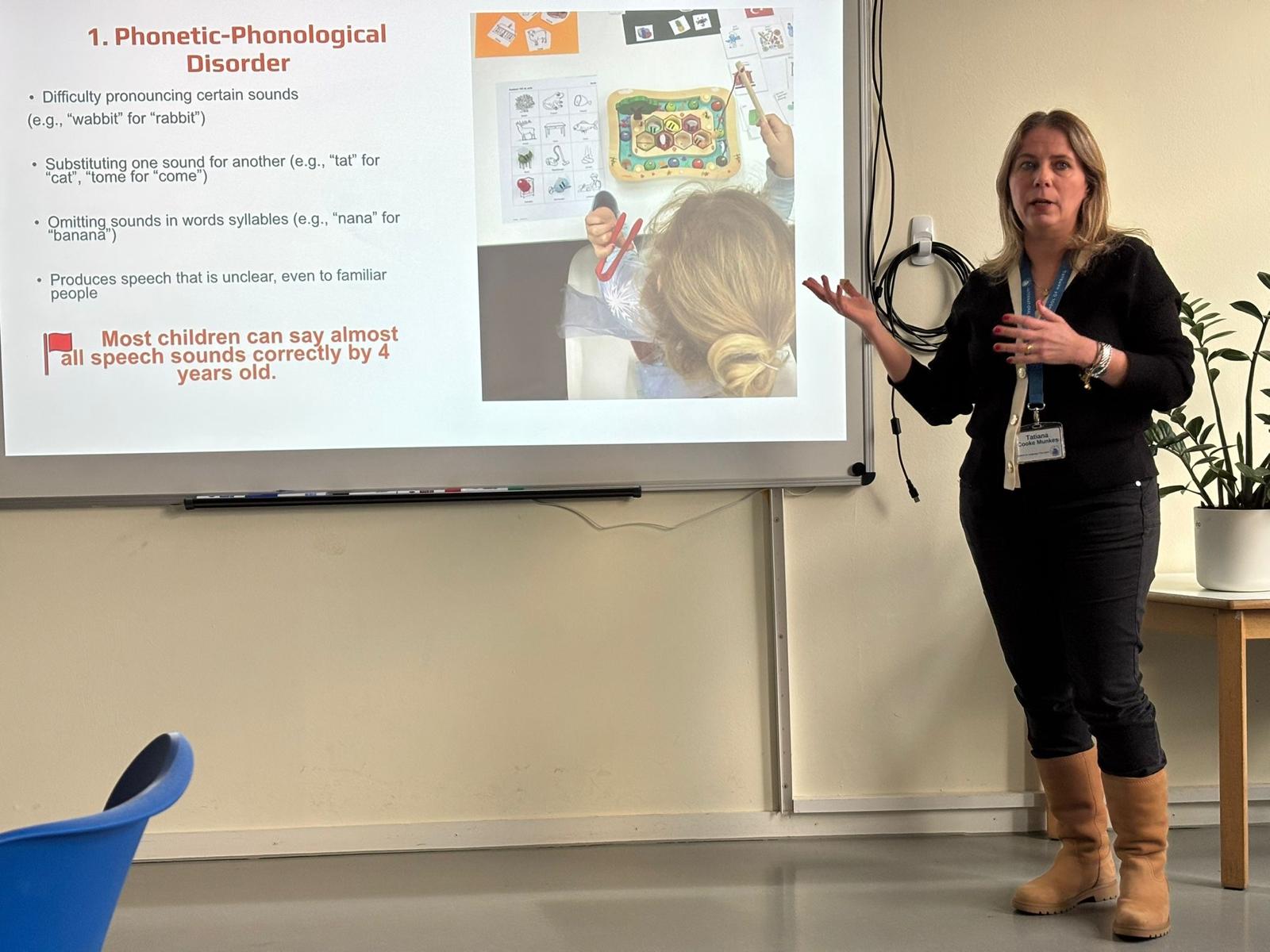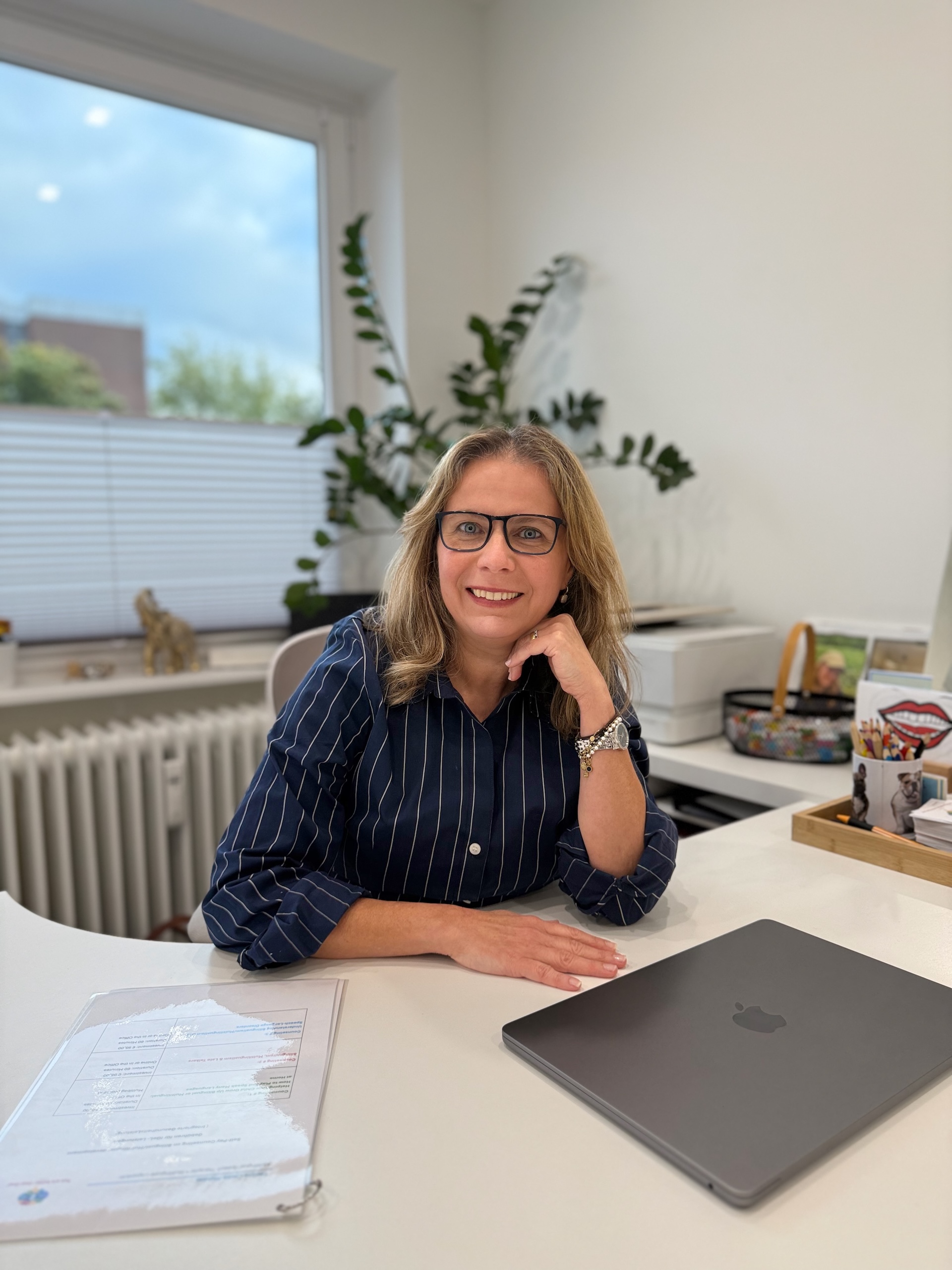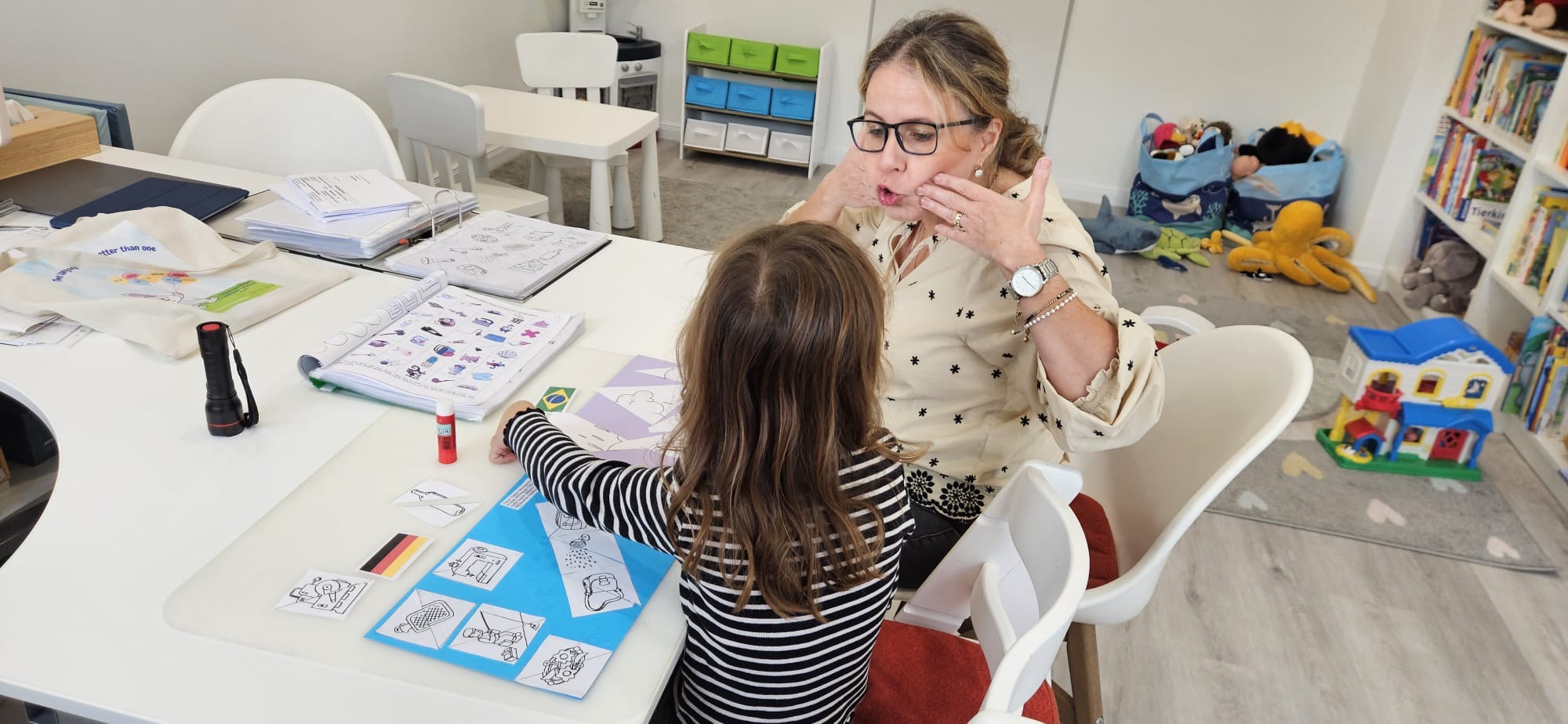
Professional Training
Workshops for Schools and Teachers
Training for educators on bilingual development, identifying difficulties and classroom support strategies.
Workshop # 1: "Understanding and supporting bilingual speech and language development in the classroom"
Course objective: Many bilingual and multilingual students are misidentified in terms of learning and language development. Therefore, not referred for speech therapy. Teachers will learn to recognize normal and delayed speech and language development in bilingual students.
- Understand typical stages of bilingual child language development.
- Recognize the difference between "normal" language development and language disorder.
- Identify warning signs for speech or language delays in bilingual students.
- Apply classroom strategies to effectively support bilingual students.
Workshop # 2: "Recognizing the most common speech and language disorders in schools"
This workshop is designed for educators who want to better understand the main communication disorders that can affect students' school performance.
- Overview of speech, language and communication
- Difference between speech and language disorders
- Red flags and classroom manifestations
- Articulation disorders (e.g.: lisp)
- Phonological deviations
- Childhood Apraxia of Speech (CAS)
- Fluency disorders (e.g., stuttering)
- Receptive language disorders (difficulty understanding instructions, vocabulary or questions)
- Expressive language disorders (limited vocabulary, use of short phrases, grammatical problems)
- Pragmatic language disorders (social communication challenges)
- Language delay vs. disorder
Workshop Benefits
Our workshops provide educators with practical tools to:
- Early identify possible communication difficulties
- Implement strategies for classroom support
- Understand the specific needs of bilingual students
- Collaborate effectively with speech therapists and families
- Create inclusive environments that benefit all students


